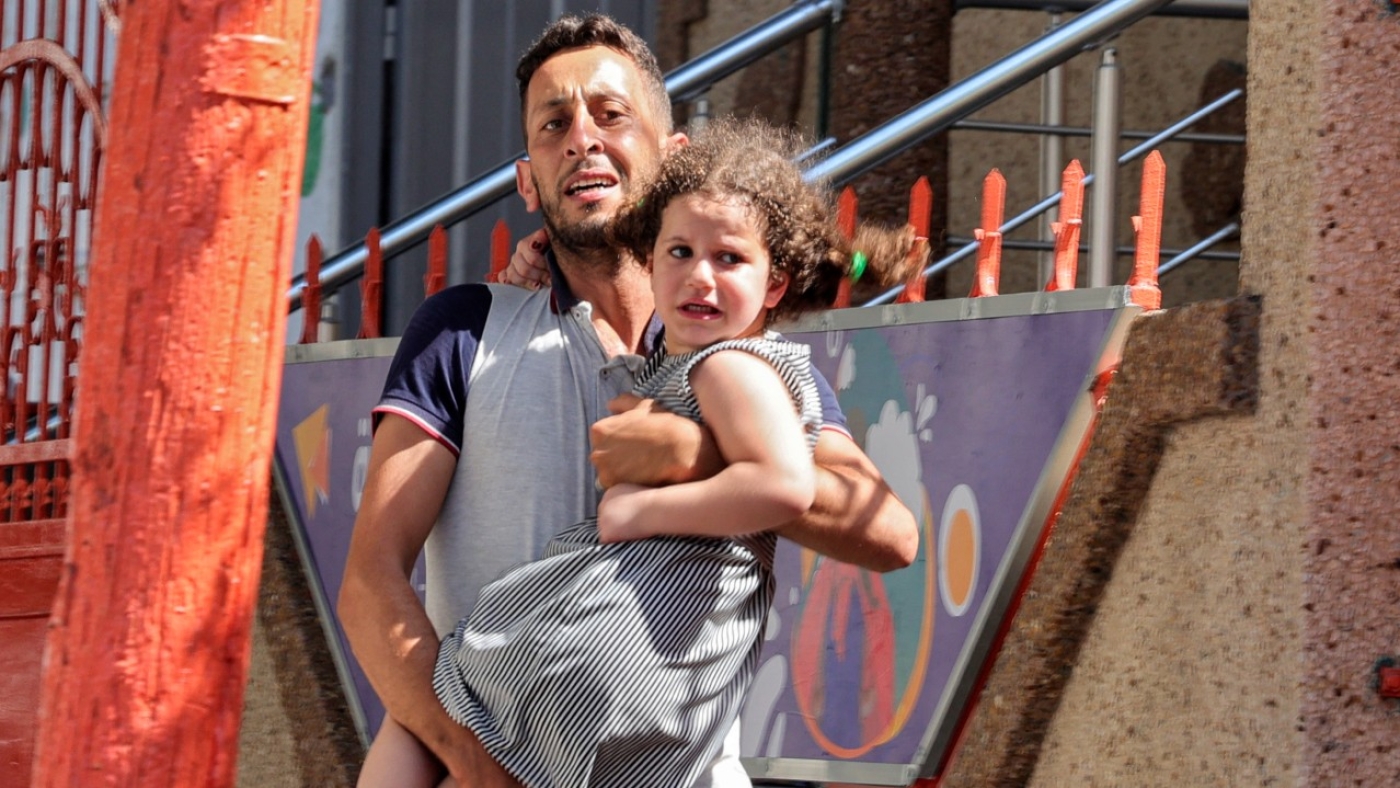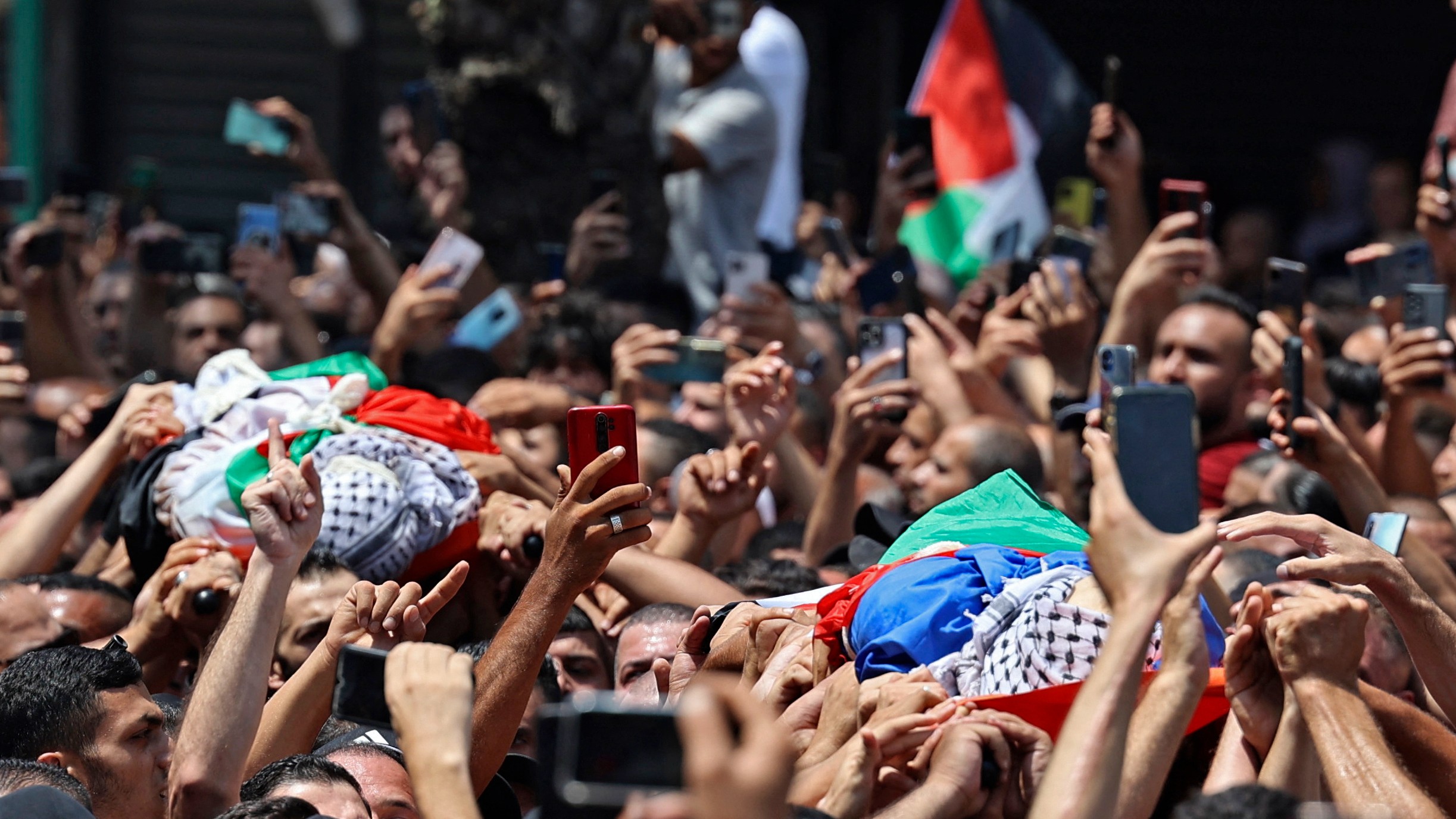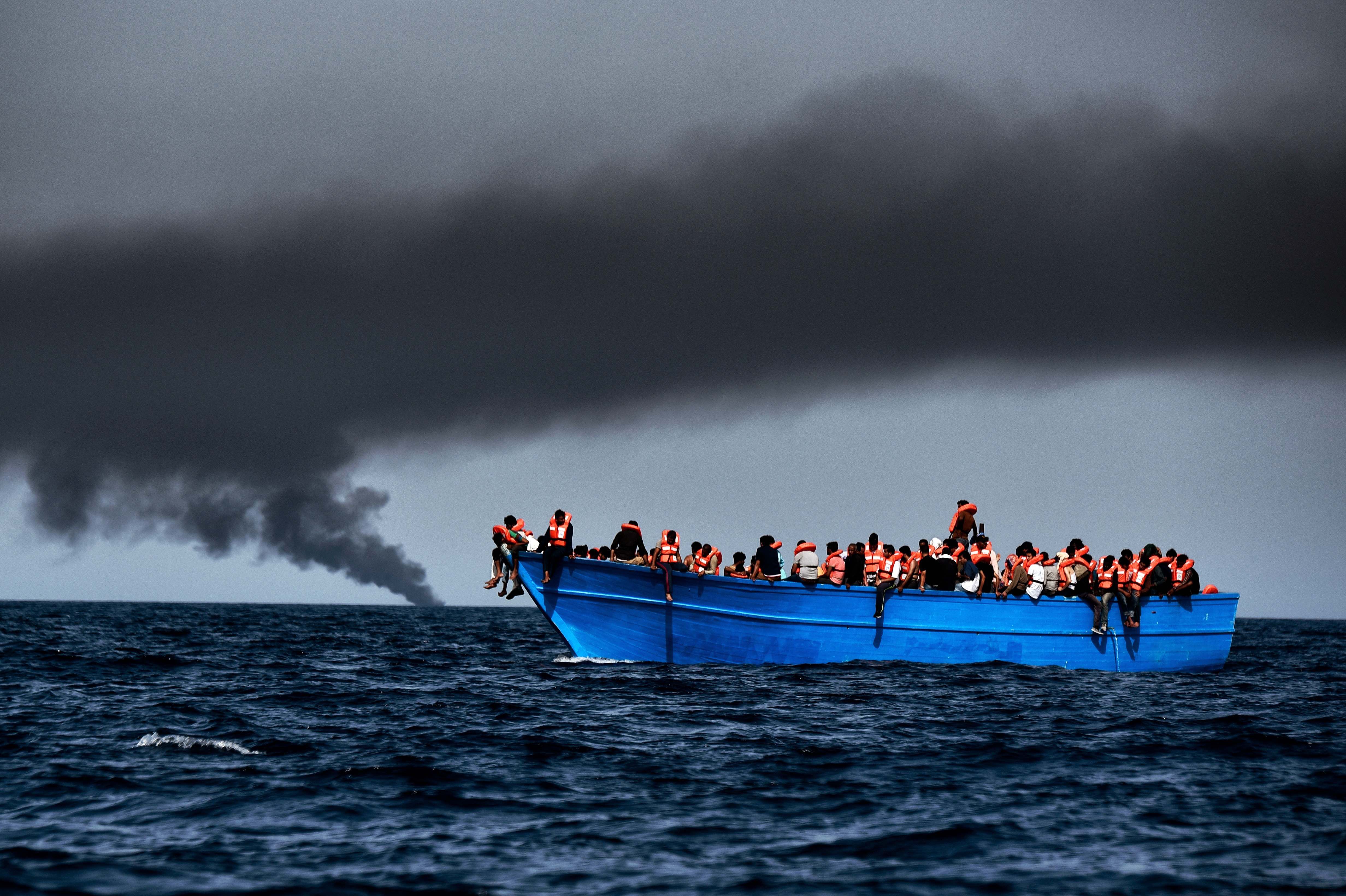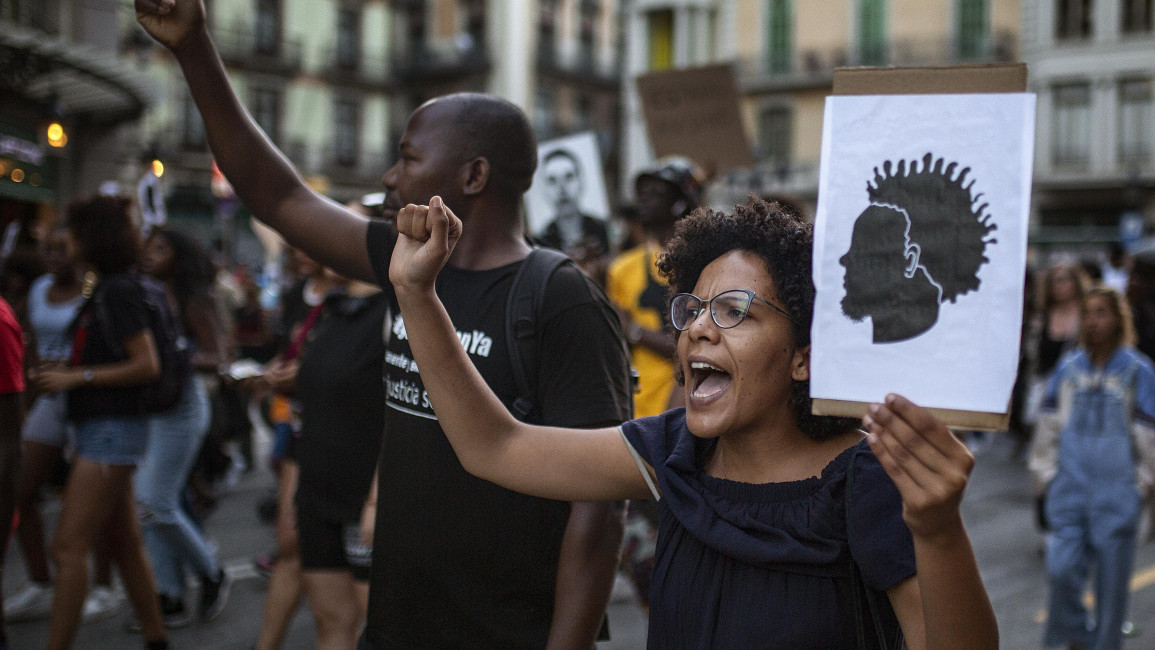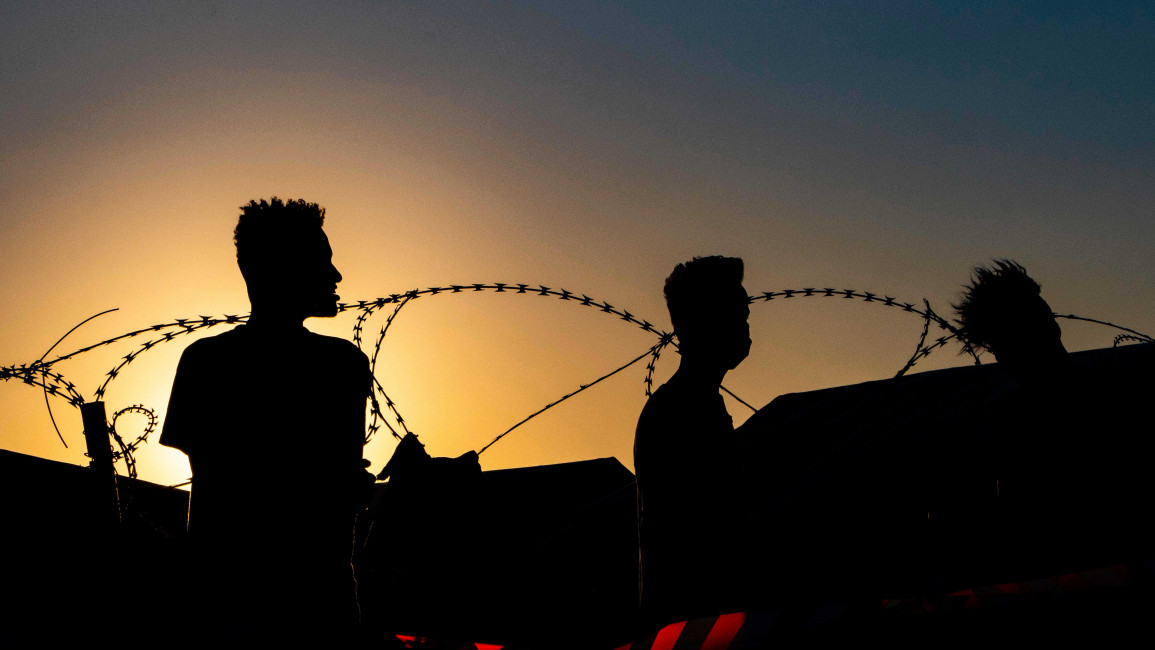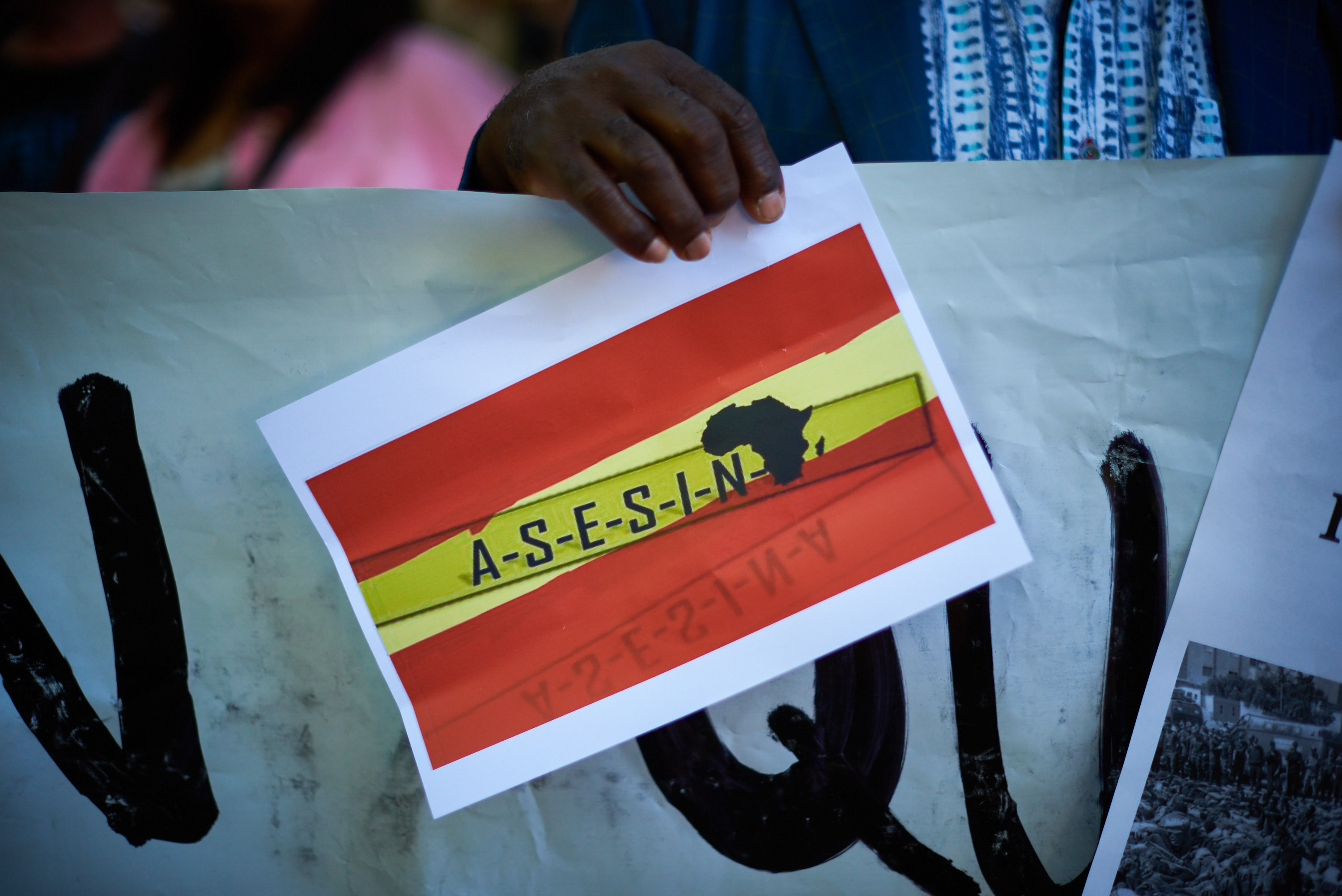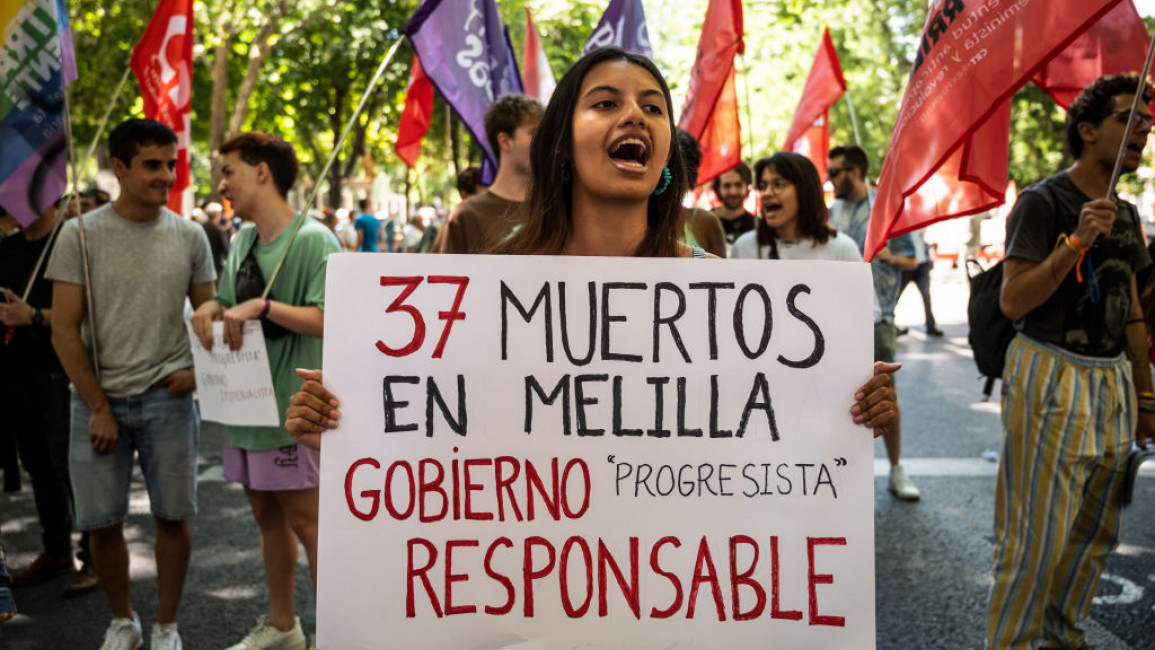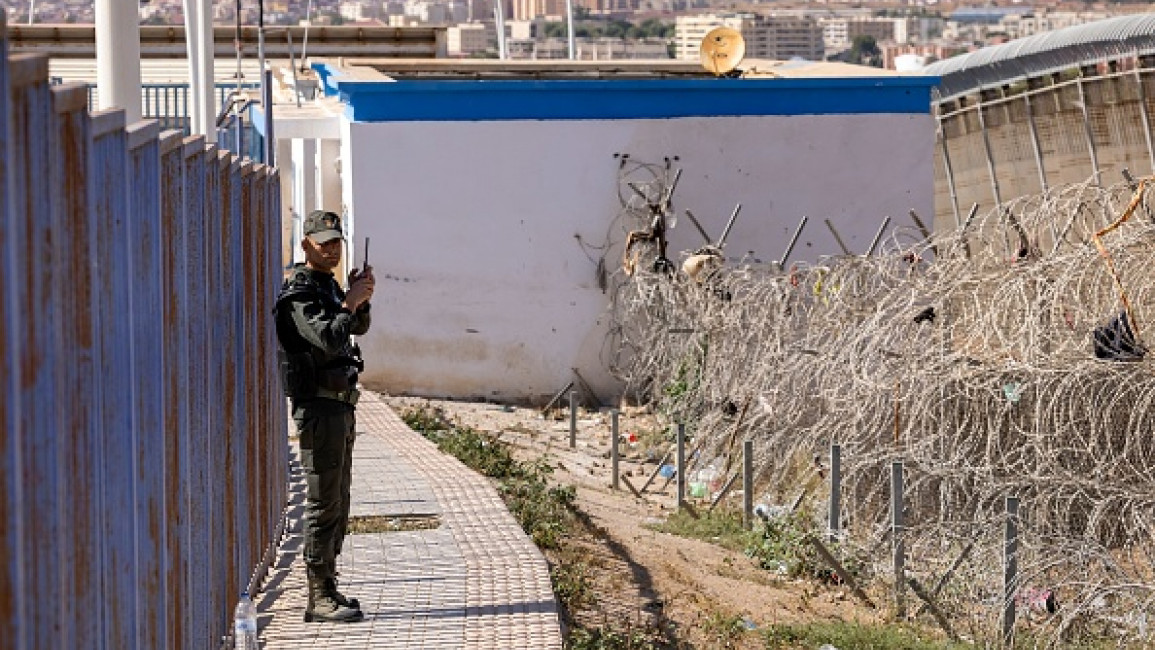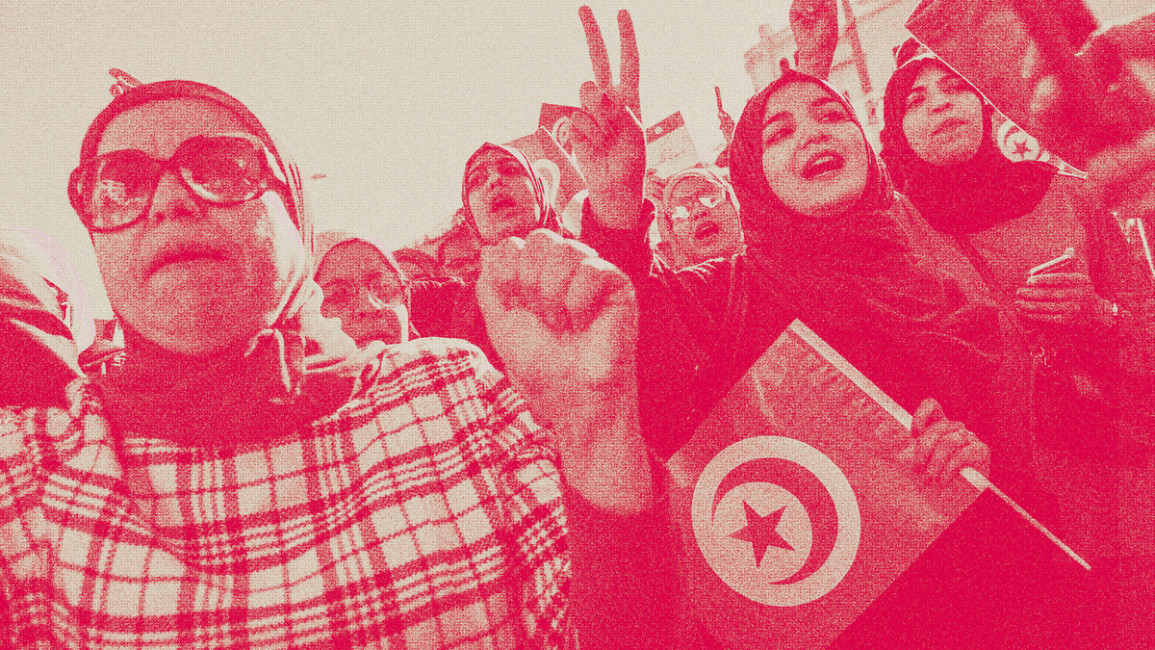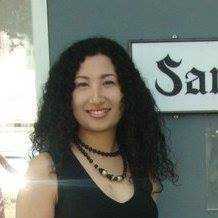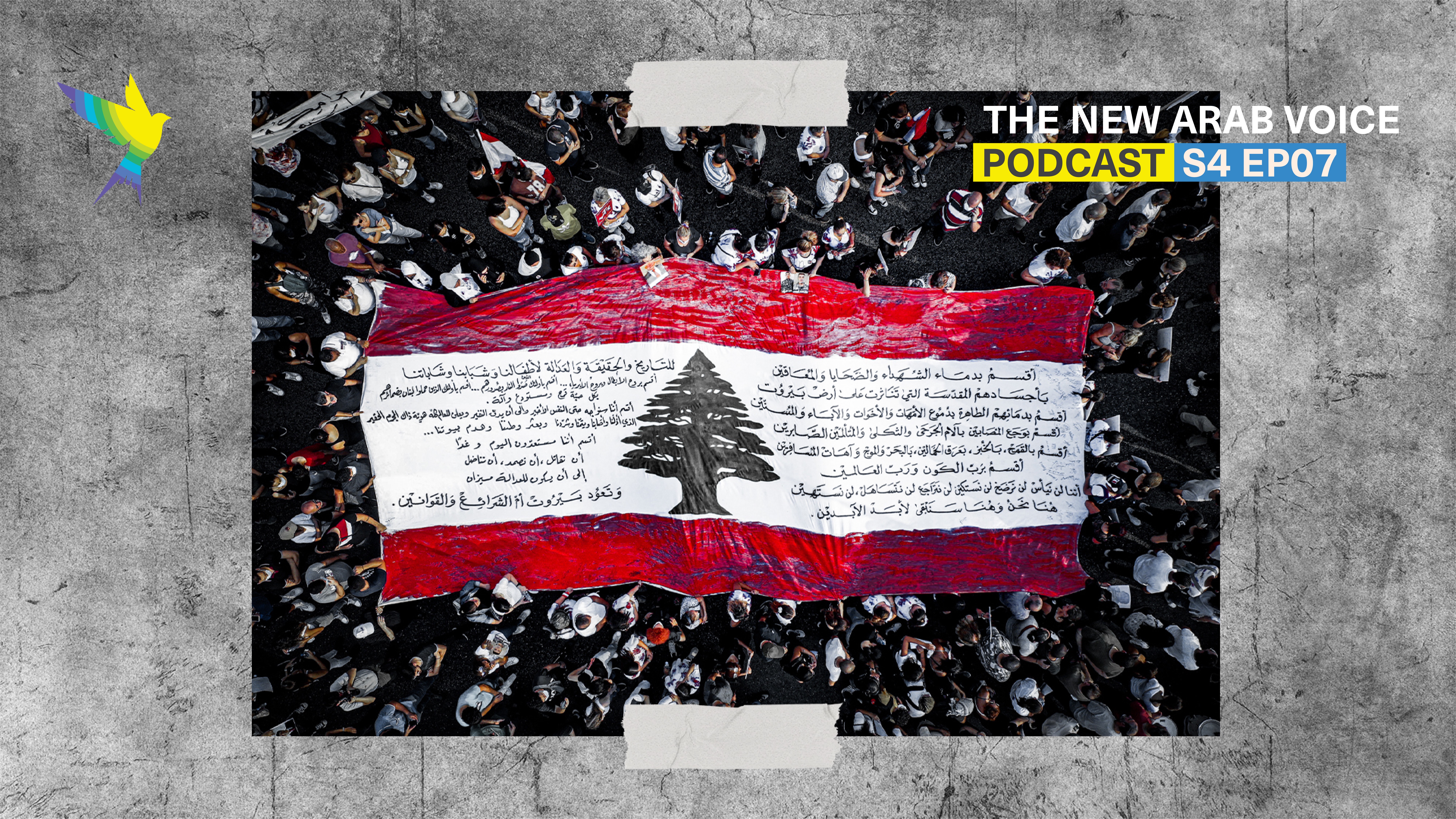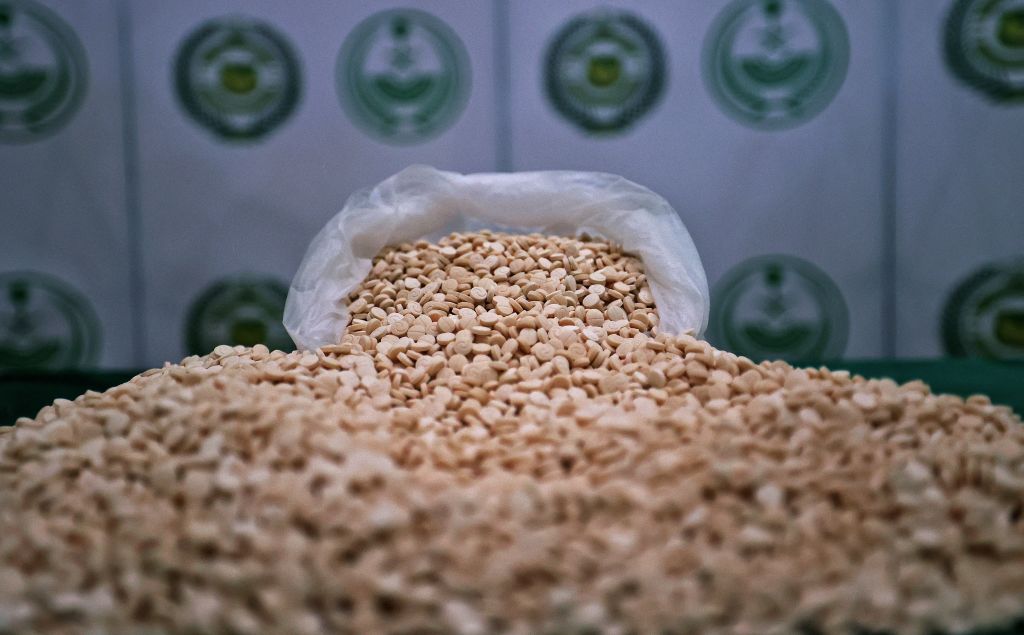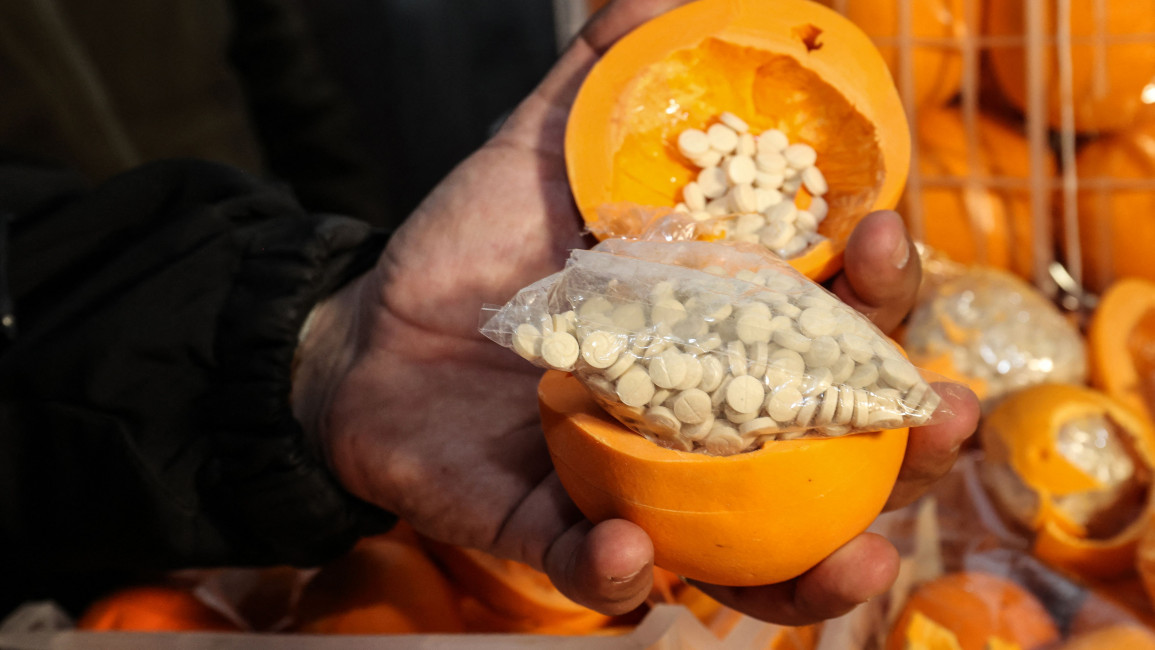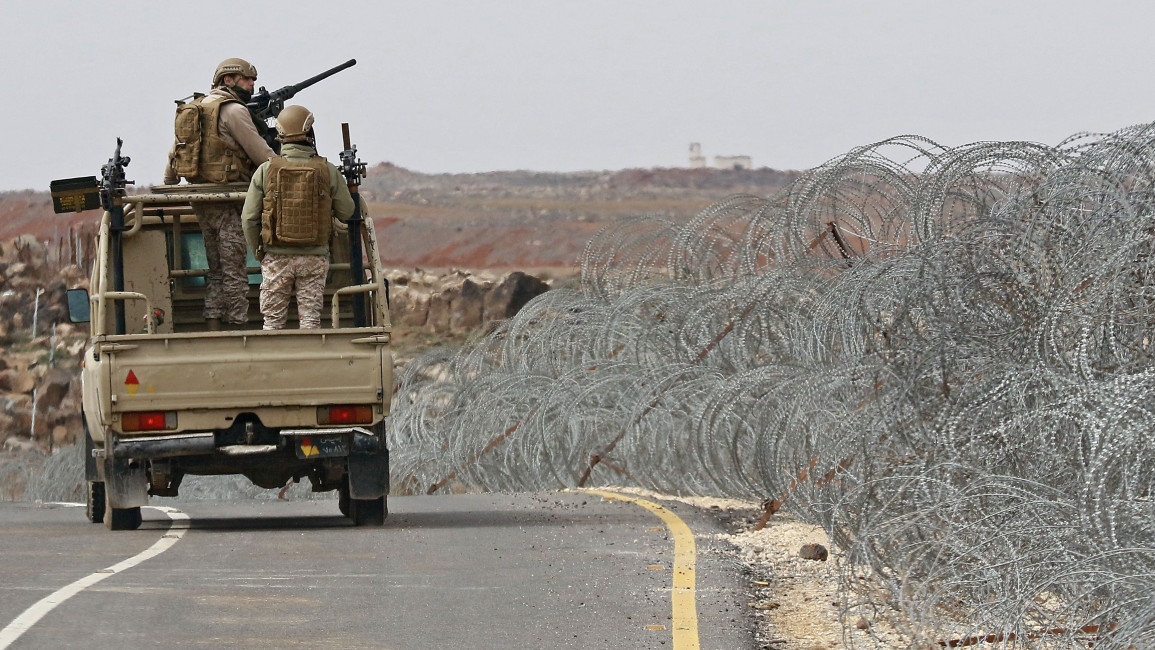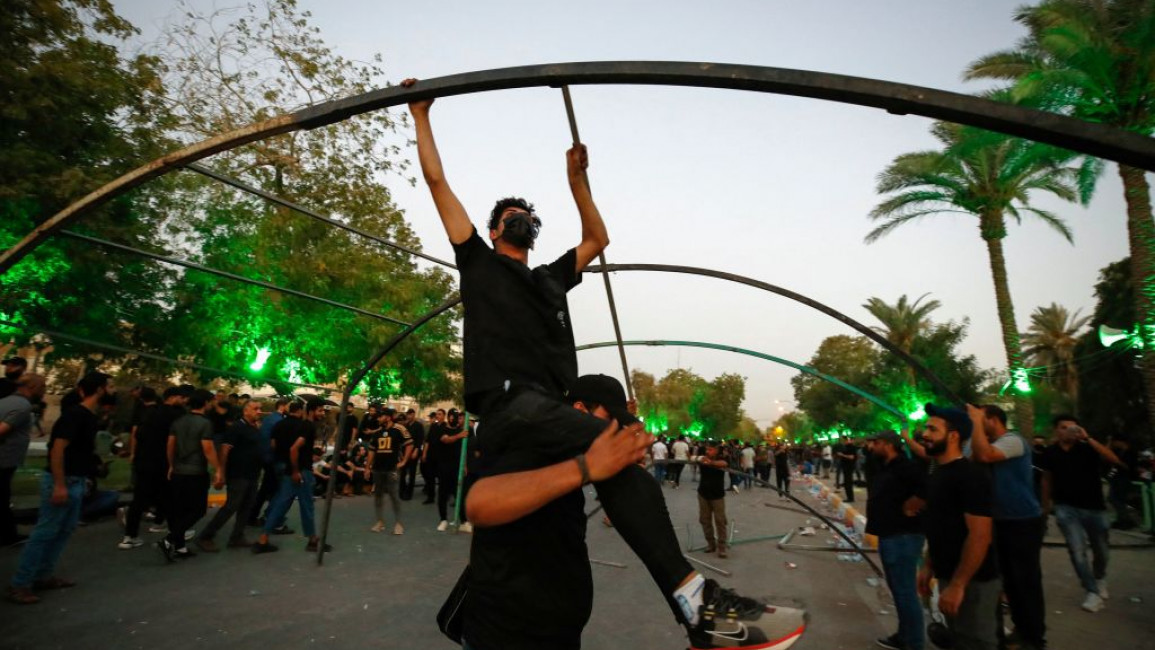Gaza Under Attack
'My daughter, my friend': The Palestinian art student killed in Israel's Gaza assault
The family of Doniyana al-Amour, a promising young artist from Gaza, talk to MEE about their warm, loving daughter and sister who made the best cups of tea
A drawing by Doniyana al-Amour, a 22-year-old Palestinian art student who was killed in an Israeli attack, displayed in her destroyed room (MEE/Abdallah al-Naami)
ByAbdallah al-Naami in
Gaza City, occupied Palestine
Published date: 12 August 2022
It was a beautiful Friday afternoon. The al-Amour family was at home in al-Fukhari, a town east of Khan Yunis in the southern Gaza Strip, enjoying the day.
Doniyana al-Amour, 22, was in her bedroom. Her brother, 21-year-old Assim, was getting ready to go out with some friends. In the next room, Assim’s mother and three other sisters were chatting and baking bread.
“We didn’t hear the explosion,” Assim told Middle East Eye. “Suddenly, everything turned dark. The only thing I heard was my mother and sisters screaming and calling for Doniyana.”
An Israeli shell had blown apart the walls of the housing, filling the family’s home with smoke and flames. Assim ran to his sister’s room to check on her. Doniyana was sitting on her bed.
'How can I think of my life without her? She has been not only my daughter but my friend'
- Farha, Palestinian mother
“I was shocked,” Assim said, describing the hardest moment in his life. “The only thing I saw was her blood pouring out and dripping onto the floor, mixing with rubble and papers.”
The 21-year-old carried his sister out into the garden and covered her with a blanket so that his mother and other sisters would not see her.
Seconds after the bombardment, Israeli forces rained heavy machine gun fire down on the house and the nearby agricultural land. The family called an ambulance, the police, and neighbours for help, but no one was able to get near the al-Amour house because of the gunfire.
After 20 minutes of shelling and under gunfire, paramedic Mohammed al-Amour (not a close relative of the family), who lives nearby, reached the house.
“Her injury was very critical,” Mohammed told MEE. “I checked and found that her heart was still beating. We rushed to save her life but we did not hold out much hope.”
Under Israeli fire, Doniyana’s father Adnan, 52, went looking for a car to take his dying daughter to hospital. “I didn’t care if I was going to get shot,” Adnan said.
“I ran through the olive trees until I found my neighbour with his farm truck. We brought the truck to the west side of the house, about 100 metres away, so the Israelis wouldn’t hit it. We carried Doniyana onto the truck and went to the European Hospital, about three kilometres away.”
Published date: 12 August 2022
It was a beautiful Friday afternoon. The al-Amour family was at home in al-Fukhari, a town east of Khan Yunis in the southern Gaza Strip, enjoying the day.
Doniyana al-Amour, 22, was in her bedroom. Her brother, 21-year-old Assim, was getting ready to go out with some friends. In the next room, Assim’s mother and three other sisters were chatting and baking bread.
“We didn’t hear the explosion,” Assim told Middle East Eye. “Suddenly, everything turned dark. The only thing I heard was my mother and sisters screaming and calling for Doniyana.”
An Israeli shell had blown apart the walls of the housing, filling the family’s home with smoke and flames. Assim ran to his sister’s room to check on her. Doniyana was sitting on her bed.
'How can I think of my life without her? She has been not only my daughter but my friend'
- Farha, Palestinian mother
“I was shocked,” Assim said, describing the hardest moment in his life. “The only thing I saw was her blood pouring out and dripping onto the floor, mixing with rubble and papers.”
The 21-year-old carried his sister out into the garden and covered her with a blanket so that his mother and other sisters would not see her.
Seconds after the bombardment, Israeli forces rained heavy machine gun fire down on the house and the nearby agricultural land. The family called an ambulance, the police, and neighbours for help, but no one was able to get near the al-Amour house because of the gunfire.
After 20 minutes of shelling and under gunfire, paramedic Mohammed al-Amour (not a close relative of the family), who lives nearby, reached the house.
“Her injury was very critical,” Mohammed told MEE. “I checked and found that her heart was still beating. We rushed to save her life but we did not hold out much hope.”
Under Israeli fire, Doniyana’s father Adnan, 52, went looking for a car to take his dying daughter to hospital. “I didn’t care if I was going to get shot,” Adnan said.
“I ran through the olive trees until I found my neighbour with his farm truck. We brought the truck to the west side of the house, about 100 metres away, so the Israelis wouldn’t hit it. We carried Doniyana onto the truck and went to the European Hospital, about three kilometres away.”
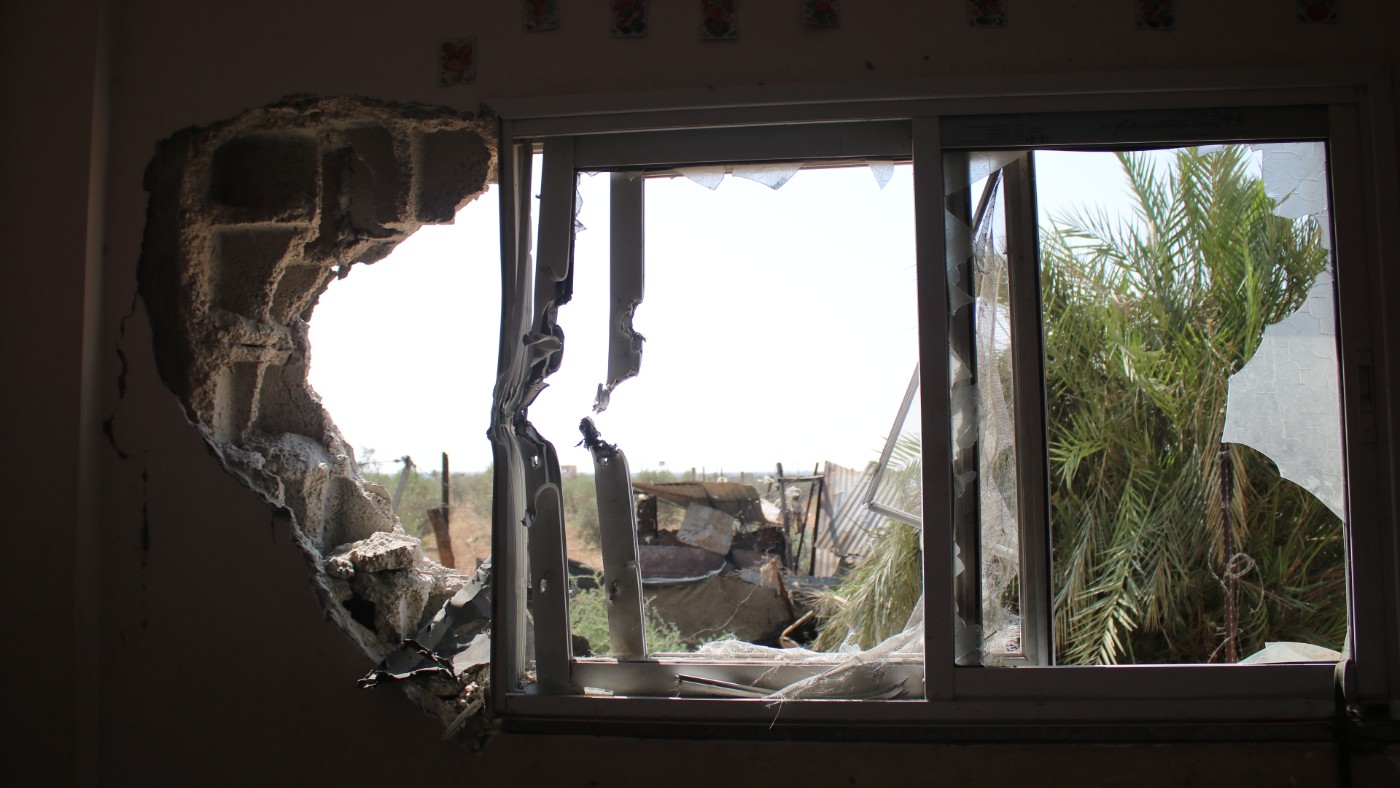
Doniyana's room after the Israeli attack (MEE/Abdallah al-Naami)
At the hospital, medical personnel spent 20 minutes trying relentlessly to revive Doniyana. Their efforts went unrewarded, though. The 22-year-old Palestinian died in the intensive care unit of the European Hospital.
The Israeli strike that killed Doniyana came at the start of a three-day onslaught on Gaza that was brought to a halt by an Egypt-brokered ceasefire on the evening of Sunday 7 August.
The attacks left 49 Palestinians - including 17 children - dead and 360 injured, including 151 children.
Portrait of a young artist
Doniyana was her family’s lynchpin, a true favourite. Warm, caring, and devoted, she spread joy and love through the home.
Asim remembered his sister, who he called Dunya. “She used to make the best tea ever. Every afternoon the family would gather under the olive trees in our yard and drink tea and chat. Doniyana loved to tell us about her latest drawings and her studies at university,” he said.
At the hospital, medical personnel spent 20 minutes trying relentlessly to revive Doniyana. Their efforts went unrewarded, though. The 22-year-old Palestinian died in the intensive care unit of the European Hospital.
The Israeli strike that killed Doniyana came at the start of a three-day onslaught on Gaza that was brought to a halt by an Egypt-brokered ceasefire on the evening of Sunday 7 August.
The attacks left 49 Palestinians - including 17 children - dead and 360 injured, including 151 children.
Portrait of a young artist
Doniyana was her family’s lynchpin, a true favourite. Warm, caring, and devoted, she spread joy and love through the home.
Asim remembered his sister, who he called Dunya. “She used to make the best tea ever. Every afternoon the family would gather under the olive trees in our yard and drink tea and chat. Doniyana loved to tell us about her latest drawings and her studies at university,” he said.
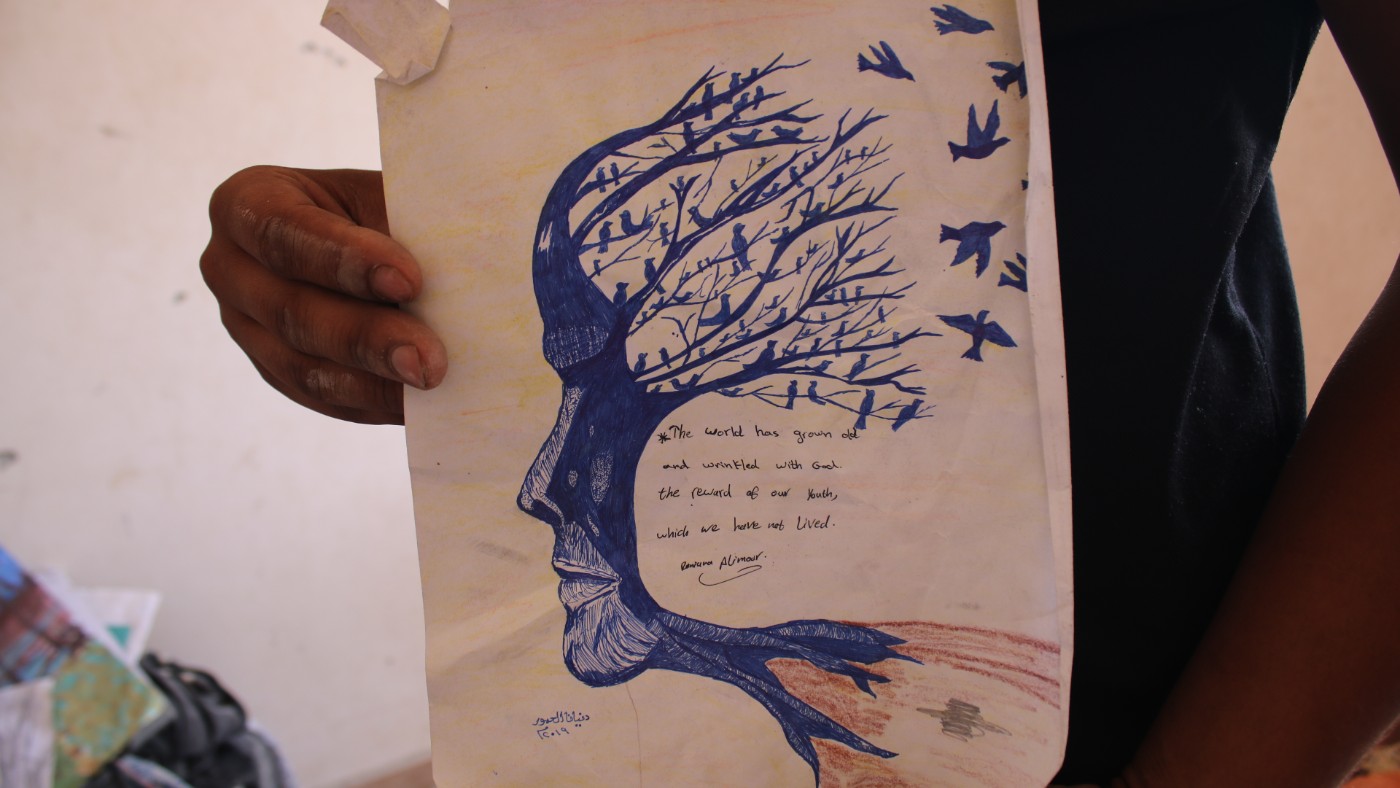
Doniyana was a prolific artist from a young age (MEE/Abdallah al-Naami)
Since she was a child, Doniyana had shown a great talent for drawing and painting. She mastered the composition of lively paintings that depicted faces in unusual ways. One of her best-loved paintings was one she had made for her niece, who contracted a fever a year ago and then died.
Doniyana chose to study art at al-Aqsa University and was just a few months from her graduation when she was killed.
“We were proud of her, we spared no effort to support her,” Assim said. “She dreamt of sending out a message of hope and resilience from Gaza to the world.” Despite their constrained situation, the family made sure Doniyana had all the equipment she needed to make her aunt.
Since she was a child, Doniyana had shown a great talent for drawing and painting. She mastered the composition of lively paintings that depicted faces in unusual ways. One of her best-loved paintings was one she had made for her niece, who contracted a fever a year ago and then died.
Doniyana chose to study art at al-Aqsa University and was just a few months from her graduation when she was killed.
“We were proud of her, we spared no effort to support her,” Assim said. “She dreamt of sending out a message of hope and resilience from Gaza to the world.” Despite their constrained situation, the family made sure Doniyana had all the equipment she needed to make her aunt.
Life in the borderland
The al-Amour family lives in a border area, just east of the Sufa Crossing road, and attacks by Israeli forces are recurrent and systematic, they say.
“It’s more like a habit for Israeli soldiers to shoot and fire tear gas canisters at us when we go to work in our fields,” Doniyana’s uncle, Saedd al-Amour, 55, told MEE.
“We are only farmers. We have no connection to military activities. All that Doniyana cared about was her family, her drawings, and her flowers. Why did they kill her?”
Her death brought back painful memories of another Israeli attack on the family. Doniyana’s aunt, Zina al-Amour, was killed by an Israeli shell in 2016. The 50-year-old Palestinian was working in her family’s fields east of al-Fukhari when she was killed.
After the attack that killed Doniyana, the al-Amour family of 10 had to move in with their neighbours, such was the damage done to their house.
“We used to leave our house at the beginning of every Israeli attack, but this time we were the first targets of the aggression,” Assim said. “We didn’t have time to escape.”

A selection of Doniyana's drawings (MEE/Abdallah al-Naami)
The family home was built with the support of UNRWA, the United Nations' Palestinian refugee agency, in 2015, after their previous house had been severely damaged in the 2014 Gaza war.
In a bid to document and trace the latest Israeli attacks, a team of lawyers and human rights activists visited the al-Amour home to look into what had happened. Their visit was part of a bid to file a complaint against the Israeli army.
"To be honest, I do not think that we are going to win a case against the Israeli army. Israel always gets away with its crimes," Doniyana's brother-in-law, Hindi al-Amur, told MEE.
'Buried a piece of my heart'
Less than two hours after declaring her death, Doniyana’s family went to bury her at the family graveyard, known as the “al-Amour cemetery”, in al-Fukhari.
“I was still in shock", Assim said. "A few hours earlier we were talking and now we're at the cemetery to bury her. My father collapsed and I was barely able to stand. I felt like I had buried a piece of my heart.”
Assim stood in the cemetery, struck dumb by what had happened. "Is this really the last time I will see her," he wondered. "My mind was unable to accept this bitter fact."
According to her family, Doniyana always loved to see everything pretty around her. She had a small, beautiful garden where she tended to the flowers. The family has turned that garden into a funeral home, a site of remembrance for their beloved young artist.
Her mother, Farha, 47, was so shocked when she first saw her daughter lying in the garden following the attack, that she refused to accept that Doniyana would not survive her wounds. The loss is immeasurable.
"How can I think of my life without her," Farha asked. "She has been not only my daughter but my friend."
The family home was built with the support of UNRWA, the United Nations' Palestinian refugee agency, in 2015, after their previous house had been severely damaged in the 2014 Gaza war.
In a bid to document and trace the latest Israeli attacks, a team of lawyers and human rights activists visited the al-Amour home to look into what had happened. Their visit was part of a bid to file a complaint against the Israeli army.
"To be honest, I do not think that we are going to win a case against the Israeli army. Israel always gets away with its crimes," Doniyana's brother-in-law, Hindi al-Amur, told MEE.
'Buried a piece of my heart'
Less than two hours after declaring her death, Doniyana’s family went to bury her at the family graveyard, known as the “al-Amour cemetery”, in al-Fukhari.
“I was still in shock", Assim said. "A few hours earlier we were talking and now we're at the cemetery to bury her. My father collapsed and I was barely able to stand. I felt like I had buried a piece of my heart.”
Assim stood in the cemetery, struck dumb by what had happened. "Is this really the last time I will see her," he wondered. "My mind was unable to accept this bitter fact."
According to her family, Doniyana always loved to see everything pretty around her. She had a small, beautiful garden where she tended to the flowers. The family has turned that garden into a funeral home, a site of remembrance for their beloved young artist.
Her mother, Farha, 47, was so shocked when she first saw her daughter lying in the garden following the attack, that she refused to accept that Doniyana would not survive her wounds. The loss is immeasurable.
"How can I think of my life without her," Farha asked. "She has been not only my daughter but my friend."
